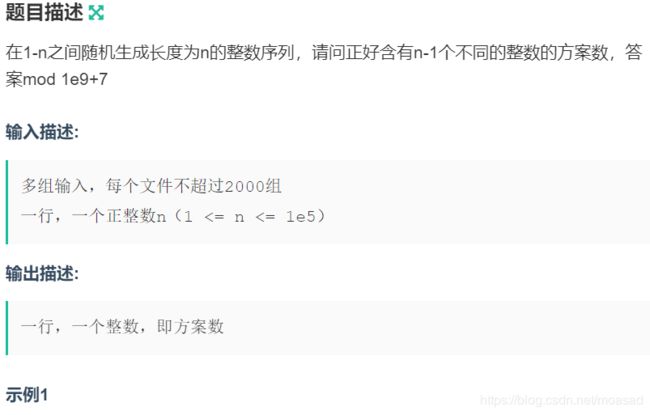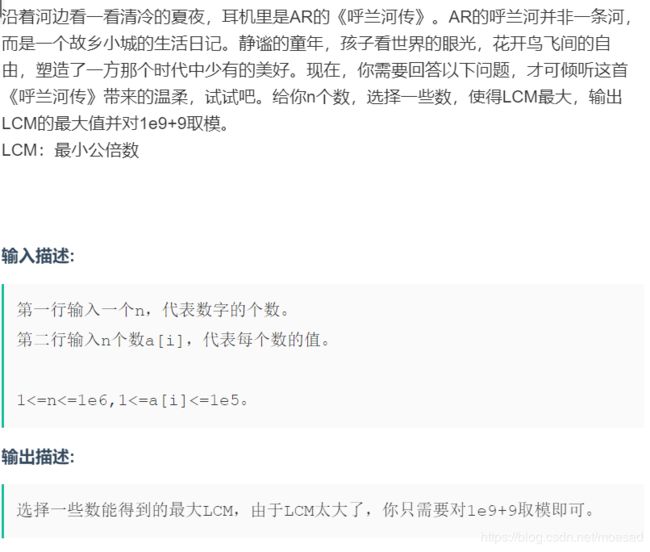西南科技大学第十六届ACM程序设计竞赛暨绵阳市邀请赛 (补题计划)(思维,数学等等)
B.签到题(组合数学)
题目传送
题意:

思路:
从n个数里面先选出n-1个数那么有n种选法。然后现在我们要构成n个数,所以必须有俩个数是一样的,现在再从n-1个数里面选出1个数,有n-1种选法那么现在有n*(n-1)种选法。然后现在的每一种选法中有n个数,那么就有n!/2种排法,因为有俩个数相同所以要除二。
这里要特别注意的是,如果多次操作大数取余,那么是很可能t掉的因为大数取余是很耗时间的,所以我们还要先预处理n的阶乘
AC代码
#include C.救救AR(思维,构造)
题目传送

思路:
1.当n小于4的时候直接输出-1。
2.当n为偶数时,那么我们直接把n拆成2*(n/2)即可,即输出俩个’A’,然后(n/2)个’R’。
3.当n为奇数时,我们先输出一个"AR",然后此时还差n-1个子序列,这时的n-1为偶数,那么又回到的了情况2,但是这时候要少输出一个’A’ 。
AC代码
#include E.呼兰河传(思维)
题目传送
题意:

思路:
很明显所有数的最小公倍数肯定是最大的,但是每一个数依次求最小公倍数肯定要t,而且每一个数求最小公倍数再取模,肯定会导致答案错误。
所以我们要换一种其他的方法:我们把每一个数质因数分解,然后统计每一个质因数最多的次数,最后再用一个快速幂(可以防止爆数据),把所有质因数的幂次方求出来就可以了
我们可以看到(1 <= n <= 1e6,1 <= a[i] <= 1e5)所以肯定有不少重复的,可以选择去重后再算,这样会快很多。如果不去重,简直是在边缘徘徊,如果我的函数调用不加inline,那么就直接t了。。。。或者直接不用函数调用,直接在主函数写也可以。
AC代码
#include 暂时补到这。。。